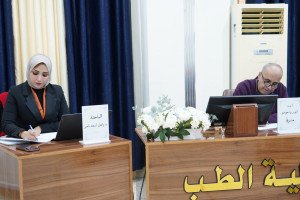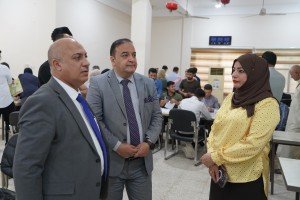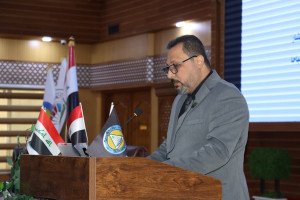


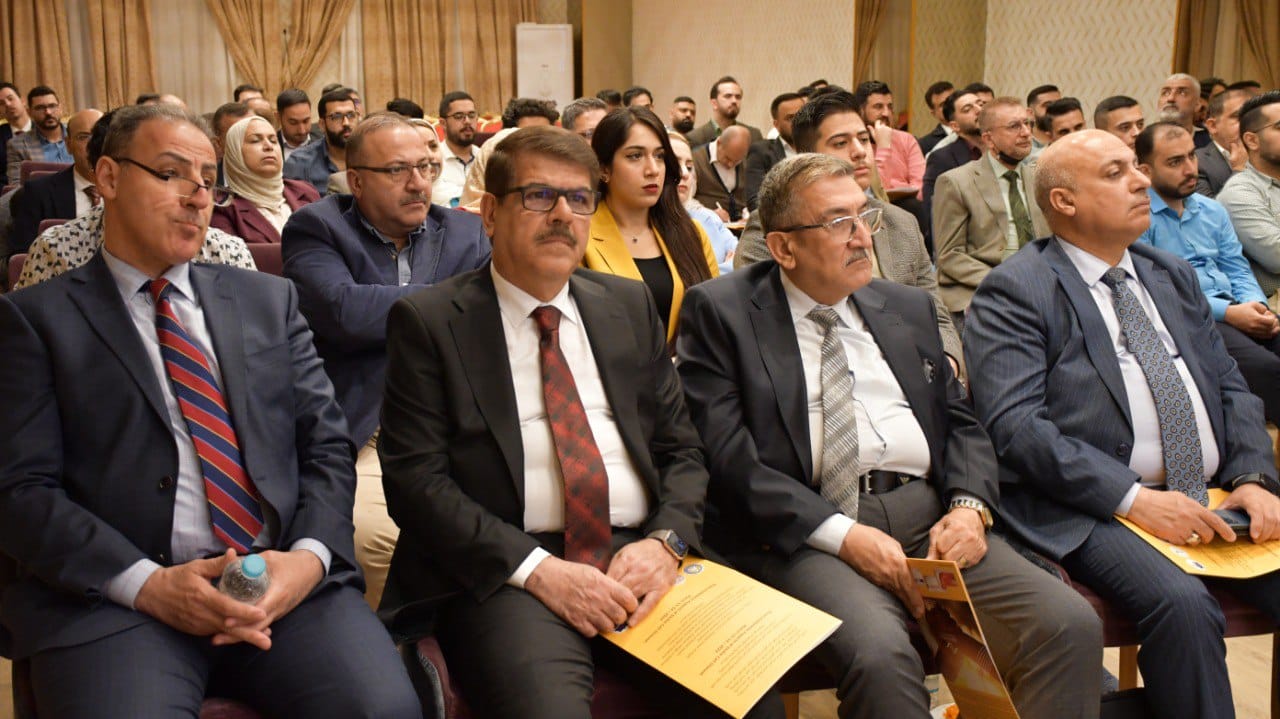
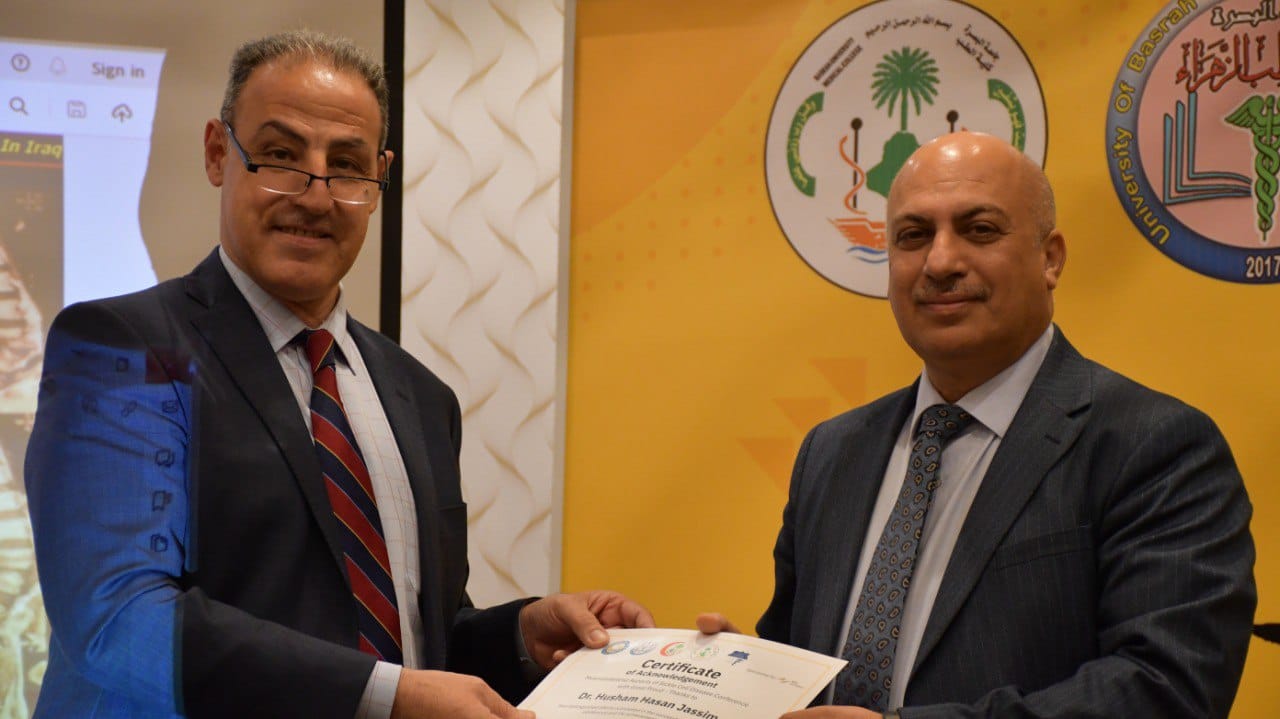
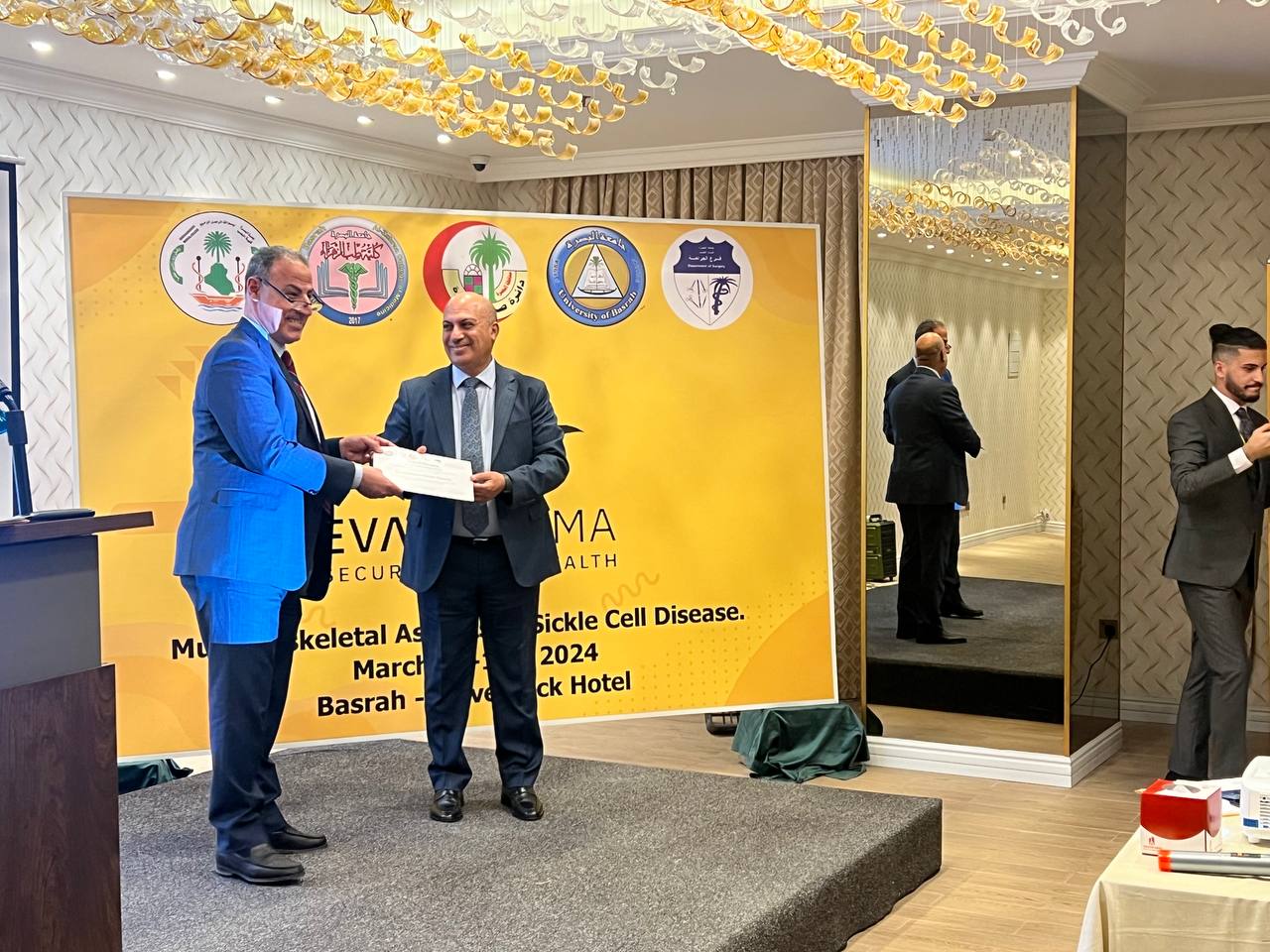
The College of Medicine at Basrah University held the scientific conference on the musculoskeletal system in patients with sickle cell anemia, in cooperation with the Al-Zahra College of Medicine and the Basrah Health Directorate. The conference aims to address the basic symptoms of the disease, which include bouts of pain that occur when affected blood cells prevent blood flow through small blood vessels to the chest, abdomen, and joints, as a result of which the patient needs to stay in the hospital for hours or days. The lectures delivered at the conference dealt with the impact of genetic environmental factors that affect the severity of sickle cell anemia, diseases of the locomotor system resulting from sickle cell anemia, including the spine, hip, and shoulder infections and injuries in addition to covering the types of surgical operations, pre-surgical preparations, and the dangers of anesthesia.
The conference recommended the necessity of implementing treatment methods and prevention standards in accordance with nationally approved standards and protocol to prevent the deterioration of patients’ condition and implementing further investigations into genetic profiling to detect patterns of sickle cell disease in Basrah. It also recommended the importance of early diagnosis of bone and joint pain and inflammation to prevent joint damage in the long term. Sickle cell patients should undergo regular examinations to evaluate joint health in a specialized clinic for that purpose. The current treatment approach relies on alleviating pain and helping prevent complications of the disease, but newer treatments may cure this disease. The conference indicated the need for the Center for Genetic Hematology to provide specialized laboratory equipment
The conference was attended by the Dean of the College of Medicine, Professor Dr. Murtadha Mohammed Saleh Al-Musafer, and many orthopedics and rheumatologists from various hospitals and governorates of Iraq.



